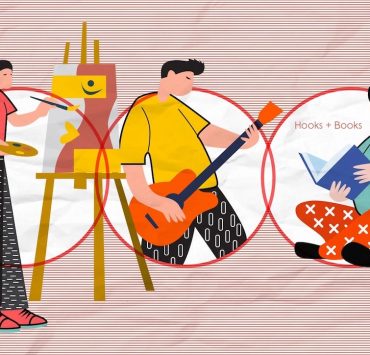Shared stories

When YA novelist Francine Pascal passed away this year at the age of 92, people from all over the world, most of them Gen Xers and older Millennials, expressed their messages of gratitude for the author. After all, for many women from my generation, the “Sweet Valley High” series was how we discovered the joy of reading a book that was not required for school. I remember how every trip to the mall when I was young involved wooing my Mom to take me to the bookstore so that I could add to my growing Sweet Valley collection. While Elizabeth and Jessica Wakefield’s adventures were not necessarily Pulitzer-worthy, these books will always be special to me because they served as my gateway drug into the world of reading for pleasure.
Reading is more than just the ability to recognize words in print and decode their meaning accurately. It also entails being motivated to immerse ourselves in the text and infer meaningful connections to our lives. Research has consistently linked love for reading with both academic and professional success. Unfortunately, reading seems to face an existential challenge in the modern world. According to the 2023 National Readership Survey, only 42 percent of adult respondents (aged 18 and above) said they still read for leisure—a big decline compared to the 54 percent in 2012.
To nurture the habit of reading, experts agree on a common starting point: We must not only teach kids how to read, we must also help them find books they truly enjoy and make reading a regular, pleasurable part of their lives. I would like to propose that to do this, we also need to bring back reading as a shared, collective experience.
Reading may largely be a solitary endeavor, but it is also inherently communal. Apart from the bond that a reader forms with the author by connecting with their thoughts and emotions on the page, reading acts as a springboard for shared moments and finding common interests with others. In the past, people would come together to tell stories that would be passed on from one generation to the next. Today, this tradition lives on in book clubs, online reading groups, and literary fairs. The way readers discuss and debate over their various opinions and interpretations of a story results not just in a more profound understanding of a text but also a sense of camaraderie and belonging.
Public libraries naturally serve as gathering places for people to discover books and new ideas. Unfortunately, their current state in the Philippines falls alarmingly short of expectations. According to a 2023 situationer released by the National Library of the Philippines, public libraries nationwide account for only 3 percent of the ideal number mandated by law. Furthermore, 79 percent of existing libraries have less than 10,000 volumes available while 12 percent are operating without any dedicated personnel. These imply that apart from the lack of libraries, those that exist do not necessarily meet the required standards to effectively inspire love for reading. The findings also highlight the limited funding and lack of prioritization given by local governments to public libraries. If we truly want to address the country’s current challenges when it comes to reading and comprehension, an integral part of that solution is allocating more resources to cultivating accessible spaces for reading.
Beyond institutions, parents play a crucial role as the first and most influential teachers when it comes to love for reading. A parent reading aloud to a child is one of the earliest shared learning experiences in families. However, even as children grow older and slowly transition away from bedtime storytelling, parents should continue to intentionally model positive reading behaviors. For example, one of my fondest memories growing up is waiting for my parents to come home from the market. I would sit with them outside in the lanai while they read the Saturday paper and I read the Funny Komiks that my Mom bought for me from the market. Children will mirror what they see. Seeing my parents read organically encouraged me to develop the same habit.
In a previous column (“Relearning the lost skill of deep reading,” 7/31/23), I shared the findings of neuroscientist Maryanne Wolf on how many people— both children and adults—are currently struggling to focus and engage fully with what they are reading. Most individuals have fallen into the habit of skimming, even for types of text that require a deeper level of reading sacrificing comprehension for speed. Experts assert that one of the biggest barriers to immersive reading is constant interruptions from phone notifications. By establishing regular family reading sessions with a strict no-gadget rule, parents can lead the example in creating an environment that fosters concentration and a more meaningful reading experience.
My younger self discovered that every book I read unlocked a new world. In reading, we don’t just escape—we expand. To ensure the next generation values and benefits from the magic of reading, it begins with us, relearning how to immerse ourselves in words and stories so we can pass on that love.
—————-
eleanor@shetalksasia.com


















